
Rabaul: The Enchanting Volcanic Jewel of Papua New Guinea
Nestled on the northeastern tip of New Britain Island, Rabaul offers a unique blend of natural beauty and historical significance. Known for its picturesque harbor surrounded by active volcanoes, Rabaul is a destination that captivates the adventurous spirit. The town itself was almost completely destroyed by volcanic eruptions in 1994, but has since risen from the ashes, making it a fascinating place to explore. Rabaul is a haven for history buffs, with its role as a major Japanese base during World War II. You can visit the extensive network of war tunnels and relics scattered throughout the town. The Rabaul War Museum provides a deeper insight into the city's wartime past. For those who love the outdoors, the nearby Tavurvur and Vulcan volcanoes offer challenging hikes with rewarding views. The breathtaking Simpson Harbour provides opportunities for diving and snorkeling in crystal-clear waters teeming with marine life. Cultural enthusiasts will also find much to love in Rabaul. The local markets are a vibrant display of Melanesian culture, where you can find traditional crafts, fresh produce, and mingle with the friendly locals. The annual Mask Festival is a must-see, showcasing the rich traditions and elaborate costumes of the Tolai people. Whether you're exploring its volcanic landscapes, historical sites, or cultural treasures, Rabaul promises an unforgettable experience.
Local tips in Rabaul
- Visit the local markets early in the morning for the freshest produce and unique crafts.
- Pack sturdy hiking boots and plenty of water if you plan to climb the volcanoes.
- Check the volcanic activity reports before visiting, as eruptions can occur without much warning.
- Hire a local guide to explore the war tunnels for a more informative experience.
- Don't miss the annual Mask Festival in July for an authentic cultural experience.
Rabaul: The Enchanting Volcanic Jewel of Papua New Guinea
Nestled on the northeastern tip of New Britain Island, Rabaul offers a unique blend of natural beauty and historical significance. Known for its picturesque harbor surrounded by active volcanoes, Rabaul is a destination that captivates the adventurous spirit. The town itself was almost completely destroyed by volcanic eruptions in 1994, but has since risen from the ashes, making it a fascinating place to explore. Rabaul is a haven for history buffs, with its role as a major Japanese base during World War II. You can visit the extensive network of war tunnels and relics scattered throughout the town. The Rabaul War Museum provides a deeper insight into the city's wartime past. For those who love the outdoors, the nearby Tavurvur and Vulcan volcanoes offer challenging hikes with rewarding views. The breathtaking Simpson Harbour provides opportunities for diving and snorkeling in crystal-clear waters teeming with marine life. Cultural enthusiasts will also find much to love in Rabaul. The local markets are a vibrant display of Melanesian culture, where you can find traditional crafts, fresh produce, and mingle with the friendly locals. The annual Mask Festival is a must-see, showcasing the rich traditions and elaborate costumes of the Tolai people. Whether you're exploring its volcanic landscapes, historical sites, or cultural treasures, Rabaul promises an unforgettable experience.
When is the best time to go to Rabaul?
Iconic landmarks you can’t miss
Rapopo Plantation Resort
Experience the ultimate tropical getaway at Rapopo Plantation Resort, where luxury meets the natural beauty of East New Britain Province.

Rabaul Market
Discover the vibrant Rabaul Market, a cultural hub in Papua New Guinea offering fresh produce, local delicacies, and unique handcrafted goods.
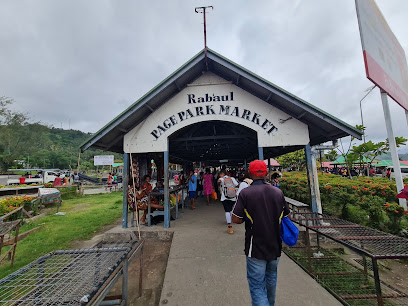
Rabaul Hotel
Discover the charm of Rabaul Hotel: a unique blend of comfort, culture, and adventure in the heart of Papua New Guinea.
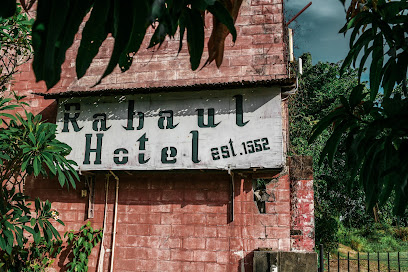
Rabaul Volcanological Observatory
Explore the Rabaul Volcanological Observatory, a captivating historical landmark showcasing the beauty and power of volcanic landscapes in Papua New Guinea.
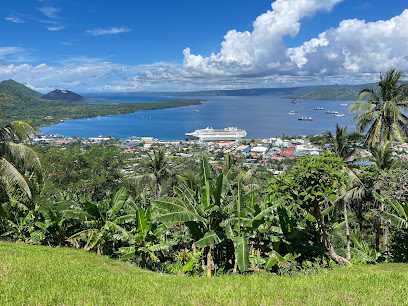
Rabaul Yacht Club
Experience the vibrant atmosphere and delectable local seafood at Rabaul Yacht Club, the perfect dining destination in East New Britain Province.
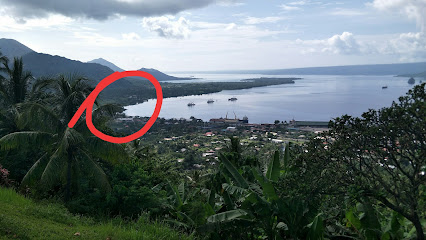
Kokopo War Museum
Discover the profound military history of Papua New Guinea at Kokopo War Museum, a captivating destination for history buffs and curious travelers alike.
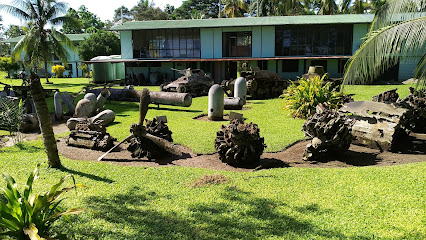
Rababa Hot Springs
Experience the therapeutic waters of Rababa Hot Springs in Matupit, Papua New Guinea, surrounded by stunning landscapes and vibrant wildlife.
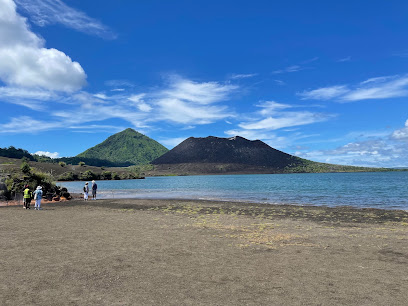
Admiral Yamamoto's Bunker
Discover the rich history of Admiral Yamamoto's Bunker, a key World War II site in Rabaul, offering breathtaking views and a glimpse into the past.
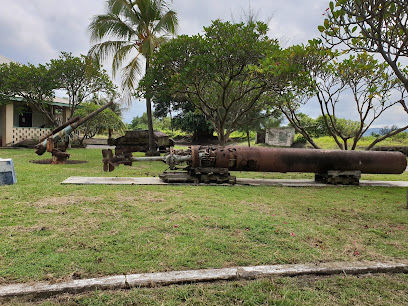
Bitapaka War Cemetery
Explore Bitapaka War Cemetery, a serene memorial honoring the brave souls of WWII amidst the lush landscapes of East New Britain Province.
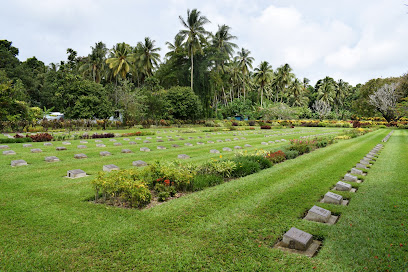
Blanche Bay Guest House
Experience the charm of Rabaul at Blanche Bay Guest House, your cozy retreat surrounded by breathtaking views and warm local hospitality.
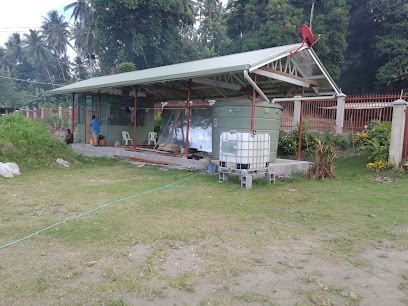
Rabaul caldera
Discover the stunning landscapes and rich history of Rabaul Caldera, a captivating volcanic wonder in Papua New Guinea, perfect for nature and adventure lovers.
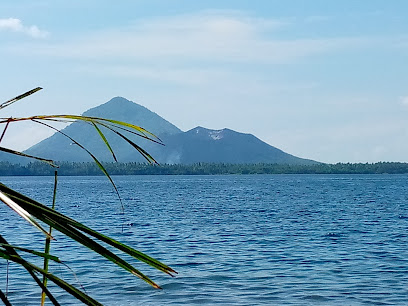
Rabaul Scenic Tours
Discover the breathtaking landscapes and rich cultural heritage of East New Britain Province with Rabaul Scenic Tours, your gateway to adventure.
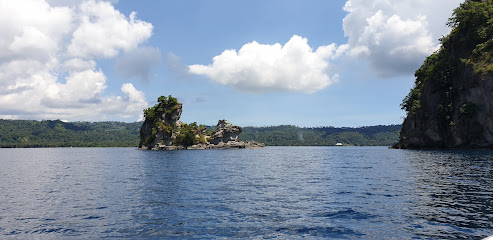
Klin Wara recreational area
Experience the serene beauty of Klin Wara Recreational Area, a perfect picnic spot in East New Britain Province for nature lovers and families alike.
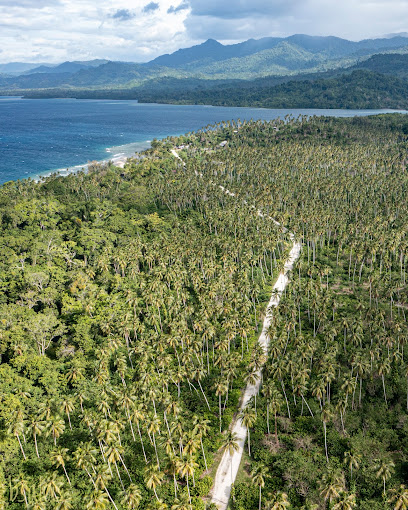
Rabaul Haus Guria, volcanic activity research station.
Explore Rabaul Haus Guria, a unique research institute dedicated to volcanic activity in East New Britain Province, Papua New Guinea.

Rabaul Volcano Observatory New Site Relocation
Explore the Rabaul Volcano Observatory, a unique site in East New Britain where science meets stunning nature amidst volcanic wonders.

Unmissable attractions to see
Kulau Lodge
Experience tranquility and stunning ocean views at Kulau Lodge, a perfect beach resort on the North Coast of Rabaul, East New Britain Province.
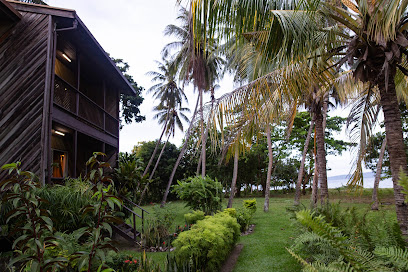
Kokopo War Museum
Explore the Kokopo War Museum, a captivating journey through Papua New Guinea’s military history and the resilience of its people.
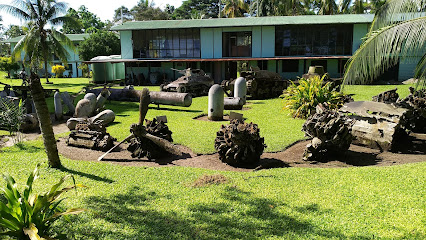
Admiral Yamamoto's Bunker
Discover the historical significance of Admiral Yamamoto's Bunker in Rabaul, a must-visit site for World War II history enthusiasts.
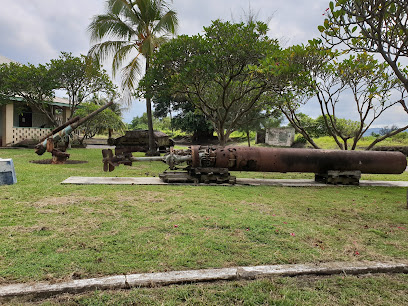
Pilapila Beach
Explore the pristine Pilapila Beach in East New Britain Province, where tranquil shores meet vibrant marine life, offering a perfect escape into nature.
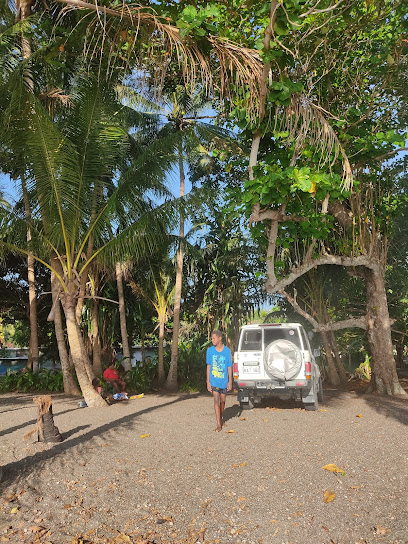
Conflict Islands Turtle Sanctuary
Explore the beautiful Conflict Islands Turtle Sanctuary and connect with nature while supporting vital sea turtle conservation efforts in the Solomon Sea.
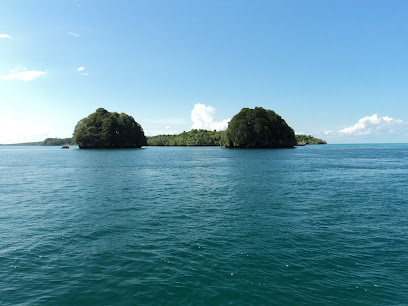
Essential places to dine
Gazelle International Hotel
Discover comfort at Gazelle International Hotel - your gateway to exploring the beauty of East New Britain Province.
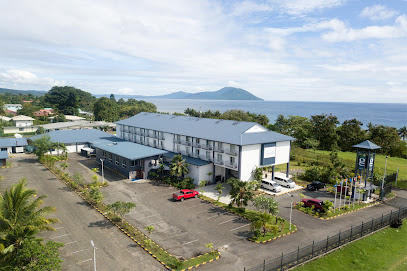
Rabaul Market
Discover Rabaul Market: A bustling fresh food market showcasing local produce and culinary traditions in Papua New Guinea.
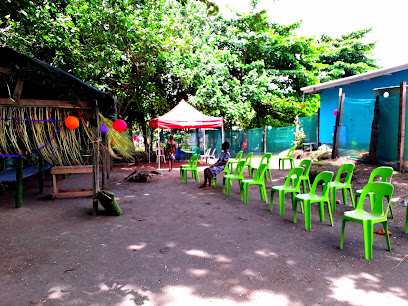
Rabaul Hotel
Experience tropical comfort at Rabaul Hotel while exploring East New Britain's stunning landscapes and rich cultural heritage.
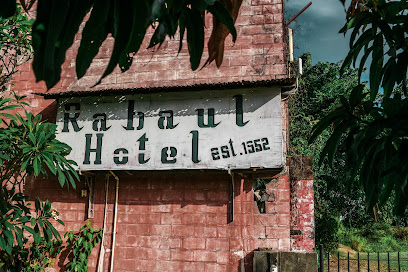
Taklam Lodge and Tours
Discover the charm of East New Britain at Taklam Lodge - your perfect blend of bed & breakfast comfort and thrilling tours.

Hot Rooster Kokopo
Savor delicious fast food at Hot Rooster Kokopo - where local flavors meet global favorites in East New Britain Province.
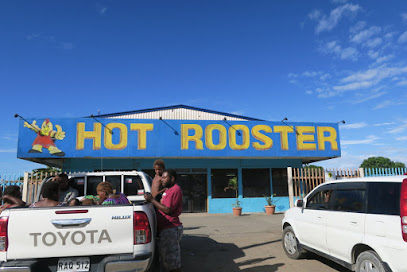
Monsieur Henry Cafe
Experience the rich culinary heritage at Monsieur Henry Cafe in Kokopo, where local flavors meet welcoming ambiance.
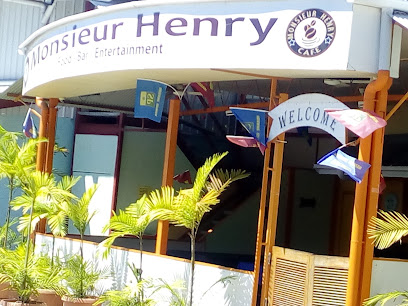
Rabaul Yacht Club
Discover exquisite dining at Rabaul Yacht Club in East New Britain—where local flavors meet breathtaking ocean views.
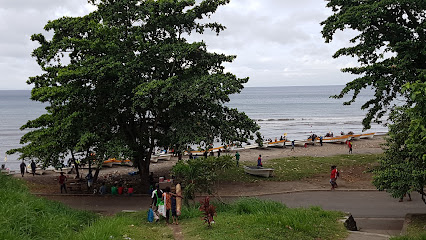
Kulau Lodge
Experience tranquility at Kulau Lodge - your perfect getaway on Rabaul's stunning North Coast Road.
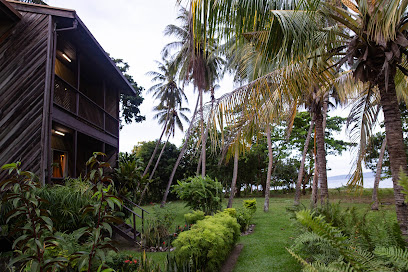
Blanche Bay Guest House
Discover comfort and local charm at Blanche Bay Guest House in Rabaul - your gateway to East New Britain's natural beauty and cultural heritage.
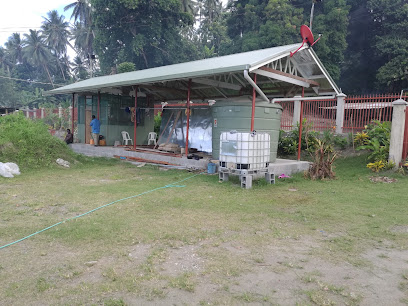
Rabaul Scenic Tours
Experience unforgettable adventures with Rabaul Scenic Tours, showcasing East New Britain's natural beauty and rich cultural heritage.
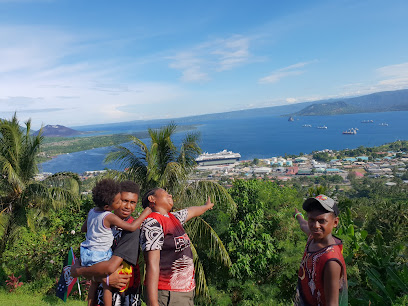
Dinnice Café - Kokopo
Experience the vibrant flavors of Papua New Guinea at Dinnice Café in Kokopo – where local ingredients meet culinary creativity.
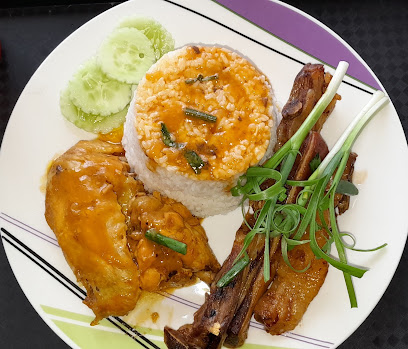
Mondo Cafeteria-Kokopo
Discover the flavors of Papua New Guinea at Mondo Cafeteria in Kokopo - where local cuisine meets warm hospitality.
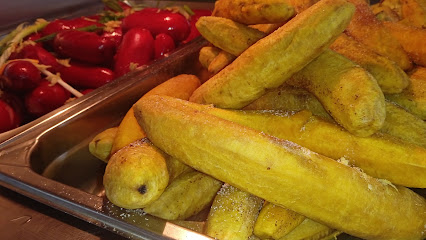
Golden Rooster
Discover delicious chicken delights at Golden Rooster in Kokopo - where local flavors meet unforgettable dining experiences.

Andersands Kai Bar
Experience authentic Papua New Guinean cuisine at Andersands Kai Bar, where local flavors meet warm hospitality in East New Britain.

ATLUMAS KAIBAR
Experience authentic Papua New Guinean flavors at Atlumas Kaibar, your cozy café destination in East New Britain Province.
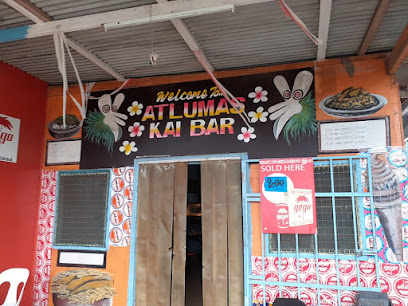
Markets, malls and hidden boutiques
Rabaul Market
Experience the vibrant culture of Papua New Guinea at Rabaul Market, where fresh produce, local handicrafts, and friendly faces await.
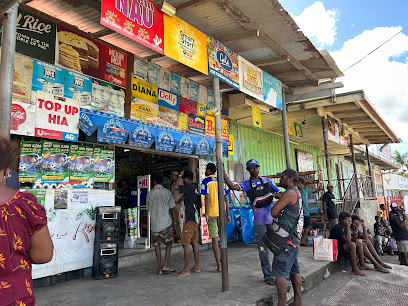
Islands Supermarket
Explore the vibrant local flavors at Islands Supermarket in Rabaul, your essential stop for fresh produce and unique Papua New Guinean ingredients.
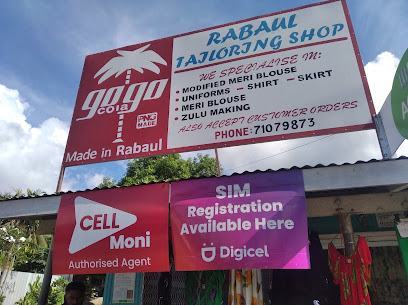
Tropicana Ltd Rabaul Branch
Discover local flavors and essentials at Tropicana Ltd Rabaul Branch, your go-to supermarket in East New Britain Province for a taste of Papua New Guinea.
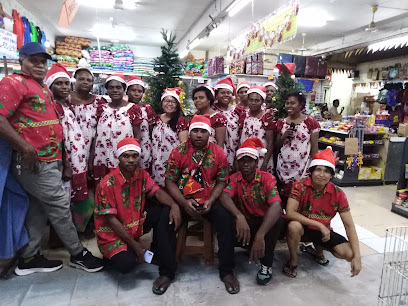
Shop 'n Sail
Discover local flavors and essential supplies at Shop 'n Sail, your go-to grocery store in Rabaul, Papua New Guinea.
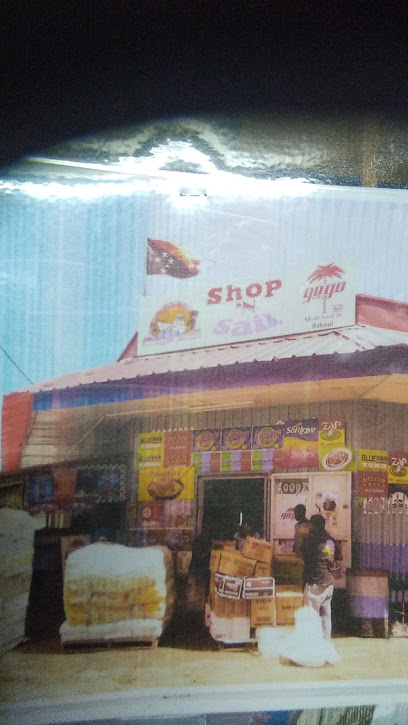
Maku Gifts
Discover unique handcrafted items at Maku Gifts, a charming home goods store in Kokopo, showcasing the artistry of Papua New Guinea.
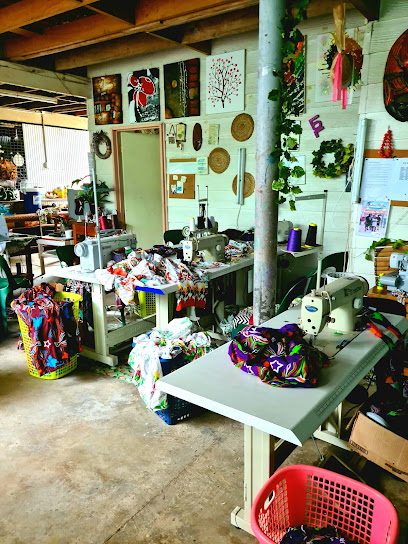
Soho Enterprise Ltd
Discover local flavors and international products at Soho Enterprise Ltd, Rabaul's vibrant grocery store offering a unique shopping experience.
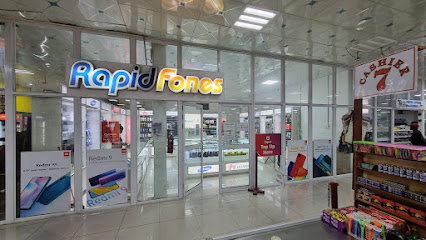
Nonga Store
Experience the vibrant culture and local flavor at Nonga Store, Rabaul's premier shopping mall, offering unique products and a taste of East New Britain.

Coolie's Convinient Shop
Experience the local culture at Coolie's Convenient Shop, a beloved grocery store in East New Britain offering fresh produce and unique local snacks.
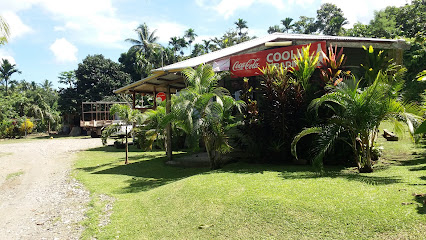
Balanawok Section
Experience the best in audio technology at Balanawok Section, Rabaul's top destination for sound enthusiasts and music lovers.
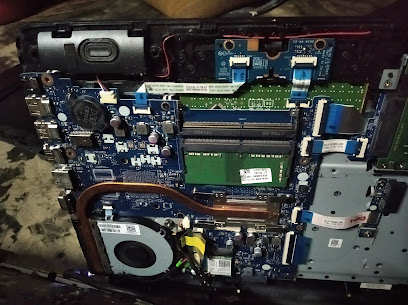
Bluesky Investment Ltd
Discover unique household appliances and immerse yourself in Rabaul's vibrant local culture at Bluesky Investment Ltd.
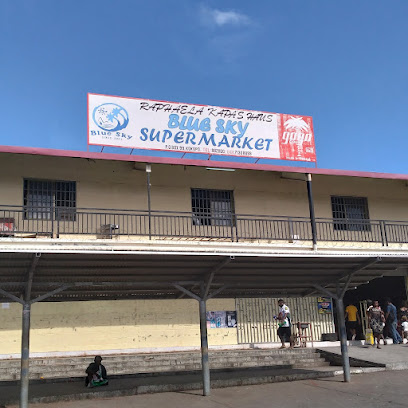
Hongland Hardware
Experience the charm of Rabaul at Hongland Hardware, where local craftsmanship meets everyday convenience in East New Britain Province.
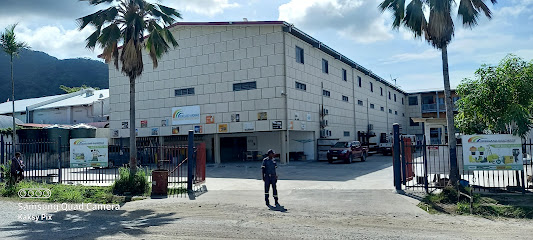
Ralimut Trading, ToWeleka Ward, NCR, ENBP
Explore local treasures at Ralimut Trading in Kokopo, your essential stop for authentic goods and unique souvenirs in East New Britain.

Happiness Supermarket Limited
Explore Rabaul's hidden gems and capture unforgettable moments at Happiness Supermarket Limited, your go-to camera store in East New Britain.

3 Carber Trading
Explore the vibrant home goods selection at 3 Carber Trading in Rabaul, where local culture meets unique craftsmanship.

Tropicana, Rabaul
Experience the vibrant local culture, shopping, and dining at Tropicana, the premier shopping mall in Rabaul, East New Britain Province.

Essential bars & hidden hideouts
Rabaul Market
Discover the flavors and crafts of East New Britain at Rabaul Market, a vibrant hub for fresh produce and local culture.
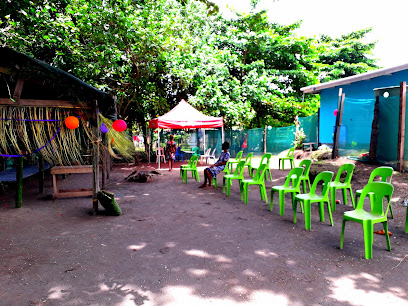
Tokua Airport AYTK
Discover the beauty of New Britain Province through Tokua Airport, your gateway to adventure in Papua New Guinea's pristine landscapes.
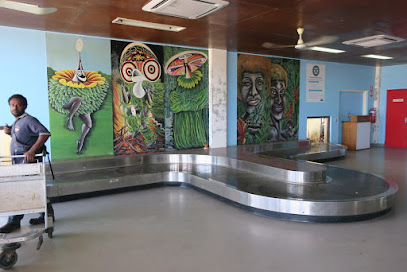
Rabaul Hotel
Discover the charm of Rabaul at Rabaul Hotel, where comfort meets authentic local culture amidst breathtaking landscapes.
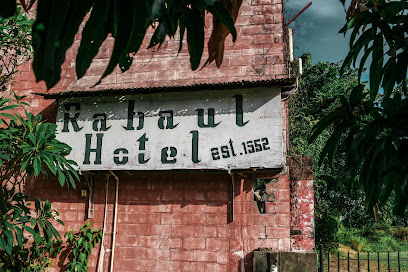
Hot Rooster Kokopo
Discover the delicious fast food experience at Hot Rooster Kokopo, where local flavors meet friendly service in East New Britain.
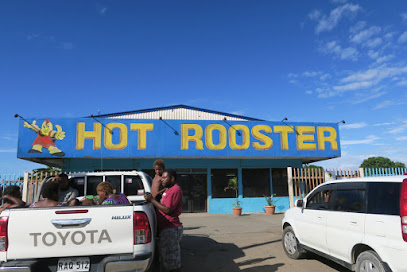
Rabaul Yacht Club
Explore the exquisite dining experience at Rabaul Yacht Club, where stunning waterfront views meet local culinary delights in East New Britain.
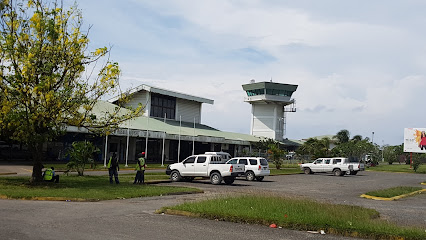
Kulau Lodge
Discover the charm of Kulau Lodge: a serene beachfront retreat in East New Britain offering relaxation, local cuisine, and unforgettable adventures.
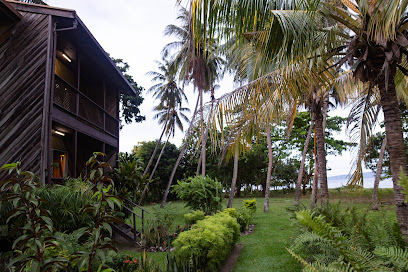
Admiral Yamamoto's Bunker
Discover the echoes of World War II at Admiral Yamamoto's Bunker in Rabaul, a poignant reminder of history amidst tropical beauty.
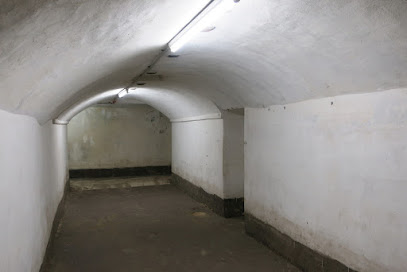
Tropicana Ltd Rabaul Branch
Discover the vibrant shopping experience at Tropicana Ltd, Rabaul's premier supermarket for fresh produce, local delicacies, and essential supplies.
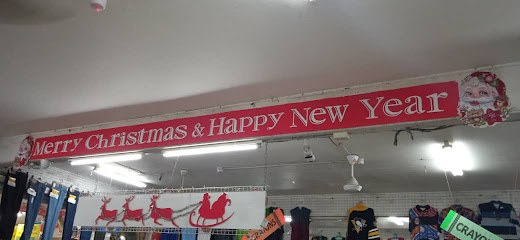
Blanche Bay Guest House
Discover the charm of Rabaul at Blanche Bay Guest House, your serene retreat in East New Britain Province, Papua New Guinea.
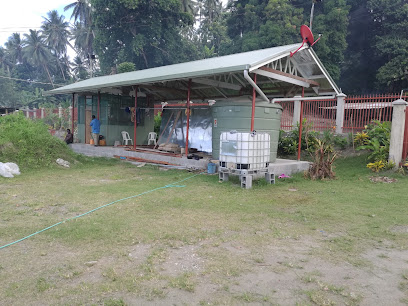
Rabaul caldera
Experience the breathtaking beauty and rich history of Rabaul Caldera, a stunning volcanic destination in Papua New Guinea.
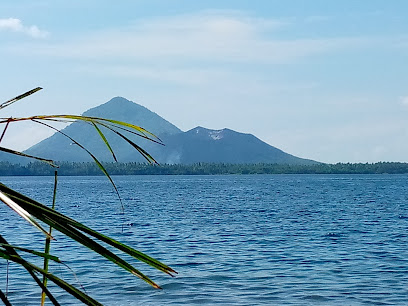
New Guinea Club & Rabaul Museum
Immerse yourself in the rich history and culture of Papua New Guinea at the New Guinea Club & Rabaul Museum in East New Britain.
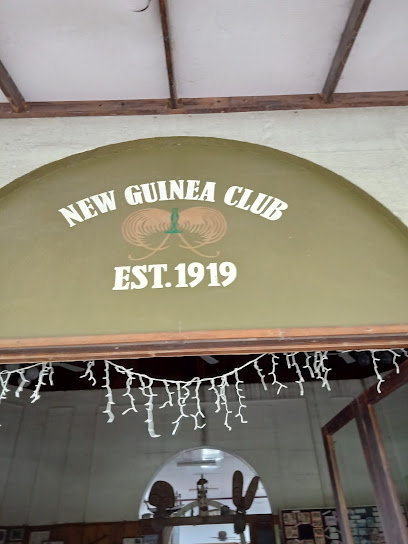
Dinnice Café - Kokopo
Experience the vibrant culinary scene at Dinnice Café in Kokopo, where local flavors meet international cuisine in a welcoming atmosphere.
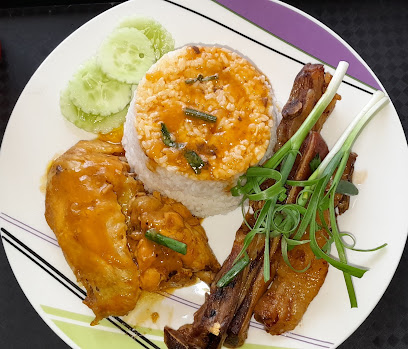
Golden Rooster
Experience the rich flavors of Papua New Guinea with delicious chicken dishes at Golden Rooster in Kokopo, East New Britain Province.

Andersands Kai Bar
Experience the rich culinary heritage of East New Britain Province at Andersands Kai Bar, where local flavors meet warm hospitality.

Local Phrases
-
- HelloTok
[tohk] - GoodbyeLiklik
[leek-leek] - YesEm
[ehm] - NoNogat
[noh-gaht] - Please/You're welcomePlis
[plees] - Thank youTenkyu
[ten-kyoo] - Excuse me/SorrySori
[soh-ree] - How are you?Yumi stap gut?
[yoo-mee stap goot] - Fine. And you?Mi stap gut. Na yu?
[mee stap goot. nah yoo] - Do you speak English?Yu save toktok long Inglish?
[yoo sah-veh tohk-tohk long in-glesh] - I don't understandMi no save long dispela
[mee no sah-veh long dees-peh-lah]
- HelloTok
-
- I'd like to see the menu, pleaseMi laik lukim menu, plis
[mee like look-eem meh-noo, plees] - I don't eat meatMi no kaik kaik
[mee noh kai-kai] - Cheers!Nogut!
[noh-gaht] - I would like to pay, pleaseMi laik bai, plis
[mee like by, plees]
- I'd like to see the menu, pleaseMi laik lukim menu, plis
-
- Help!Halivim mi!
[hah-lee-veem mee] - Go away!Lusim mi!
[loo-seem mee] - Call the Police!Kolim Polis!
[koh-leem poh-lees] - Call a doctor!Kolim dokta!
[koh-leem dok-tah] - I'm lostMi lusim
[mee loo-seem] - I'm illMi sik
[mee seek]
- Help!Halivim mi!
-
- I'd like to buy...Mi laik baim...
[mee like bai-m] - I'm just lookingMi lukim tasol
[mee look-eem tah-sol] - How much is it?Em i stap long hamas?
[ehm ee stap long hah-mahs] - That's too expensiveEm i stap gutpela moni
[ehm ee stap goot-peh-lah moh-nee] - Can you lower the price?Yu ken kisim i stap lus?
[yoo kehn kee-sim ee stap loos]
- I'd like to buy...Mi laik baim...
-
- What time is it?Kilim taem?
[kee-leem tah-em] - It's one o'clockEm i wan taem
[ehm ee wahn tah-em] - Half past (10)Haus pasten
[hows pah-sten] - MorningMoning
[moh-neeng] - AfternoonApinun
[ah-pee-noon] - EveningEvenin
[eh-veh-neen] - YesterdayDei yestede
[day yes-teh-day] - TodayTudei
[too-deh] - TomorrowTomoro
[toh-mo-roh] - 1Wan
[wahn] - 2Tu
[too] - 3Tri
[tree] - 4Fo
[foh] - 5Faiv
[fah-eve] - 6Sikis
[sik-ees] - 7Seven
[seh-vehn] - 8Eit
[eyt] - 9Nain
[nine] - 10Ten
[tehn]
- What time is it?Kilim taem?
-
- Where's a/the...?Wara em...
[wah-rah ehm] - What's the address?Em i gat adres?
[ehm ee gaht ah-dress] - Can you show me (on the map)?Yu ken soim mi long map?
[yoo kehn soy-mee mee long map] - When's the next (bus)?Next taim bus i kam?
[neks tah-eem bus ee kahm] - A ticket (to ....)Wan tiket long...
[wahn tee-keht long]
- Where's a/the...?Wara em...
History of Rabaul
-
Rabaul has been inhabited for thousands of years, with evidence of human activity dating back to prehistoric times. The indigenous Tolai people have long called this area home, developing a complex society based on fishing, agriculture, and trade.
-
In the late 19th century, Rabaul became a focal point for colonial ambitions. The Germans established a presence in the region in 1884, and Rabaul was later declared the capital of German New Guinea in 1910. The town flourished under German rule, with significant infrastructure development, including roads, buildings, and a harbor.
-
Following the outbreak of World War I, Australian forces captured Rabaul in 1914. After the war, the League of Nations mandated the territory to Australia. Under Australian administration, Rabaul continued to grow, becoming a key administrative and military hub in the Pacific.
-
Rabaul's strategic location made it a prime target during World War II. In January 1942, Japanese forces invaded and occupied the town, transforming it into a major military base. Rabaul became heavily fortified, with extensive tunnel systems and airfields. The Allied forces launched numerous bombing raids, leaving much of the town in ruins by the war's end.
-
After World War II, Rabaul was rebuilt and continued to serve as a significant center for the region. Papua New Guinea gained independence from Australia in 1975, and Rabaul played a key role in the newly formed nation's development. The town was a vibrant center of commerce, culture, and education.
-
Rabaul is situated on the edge of a volcanic caldera, and its history is marked by volcanic activity. In 1994, a major eruption from Tavurvur and Vulcan volcanoes devastated Rabaul, covering the town in ash and forcing the evacuation of its residents. Despite the destruction, the resilient community has continued to rebuild and adapt to the challenges posed by its volatile environment.
-
Rabaul is rich in cultural heritage, with the Tolai people maintaining their traditional customs and practices. The region is known for its vibrant music, dance, and art. The Baining fire dance, a spectacular and ancient ritual, is one of the many cultural highlights that visitors can experience. The town also hosts various festivals and markets that showcase local crafts and produce.
Rabaul Essentials
-
Rabaul is located on the northeastern tip of New Britain Island in Papua New Guinea. The nearest international airport is Tokua Airport (RAB), which is around 20 kilometers from Rabaul. You can reach Rabaul by taking a domestic flight from Port Moresby, the capital of Papua New Guinea. Several airlines operate daily flights between Port Moresby and Tokua Airport. From Tokua Airport, you can take a taxi or a shuttle bus to Rabaul.
-
Rabaul is relatively small, and many attractions are within walking distance. For longer trips, local PMVs (Public Motor Vehicles) and taxis are available. PMVs are the most common form of public transport and are quite affordable. Taxis are more expensive but offer more comfort and convenience. Renting a car is also an option but be aware that road conditions can be challenging, especially after heavy rains.
-
The official currency in Papua New Guinea is the Papua New Guinean Kina (PGK). Credit cards are accepted in some hotels, restaurants, and larger shops, but it is advisable to carry cash, especially in smaller establishments and local markets. ATMs are available in Rabaul, but it is wise to withdraw sufficient cash in larger towns or cities before traveling to ensure you have enough funds.
-
Rabaul is generally safe for tourists, but it is essential to take standard precautions. Avoid walking alone at night in unfamiliar areas and keep an eye on your belongings in crowded places. Some areas in Rabaul have higher crime rates, particularly those targeting tourists. Areas around the old town and the market can be hotspots for petty crime, so stay vigilant.
-
In case of emergency, dial 111 for immediate assistance. The local police station and medical facilities are available in Rabaul. It is recommended to have travel insurance that covers medical emergencies. For minor health issues, there are pharmacies in town where you can purchase over-the-counter medications.
-
Fashion: Do dress modestly, especially when visiting local villages or religious sites. Avoid wearing revealing clothing. Religion: Do respect local customs and traditions. Always ask for permission before taking photographs in sacred sites or of local people. Public Transport: Do be respectful and give up your seat to elderly passengers. Don't eat or drink on public transport. Greetings: Do greet people with a handshake or a nod. Avoid overly enthusiastic greetings as it may be considered inappropriate. Eating & Drinking: Do try local delicacies and accept food offerings graciously. Don't refuse hospitality, as it is considered impolite.
-
To experience Rabaul like a local, visit the local markets where you can buy fresh produce and traditional Papua New Guinean goods. Engage with locals, as they are often friendly and willing to share stories about the town's history and culture. Don't miss visiting the Rabaul Volcanological Observatory for breathtaking views of the town and surrounding volcanoes. For a unique experience, take a boat tour to the nearby islands and explore the beautiful coral reefs and marine life.
Trending Landmark in Rabaul
-
Rapopo Plantation Resort
-
Rabaul Market
-
Rabaul Hotel
-
Rabaul Volcanological Observatory
-
Rabaul Yacht Club
-
Kokopo War Museum
-
Rababa Hot Springs
-
Admiral Yamamoto's Bunker
-
Bitapaka War Cemetery
-
Blanche Bay Guest House
-
Rabaul caldera
-
Rabaul Scenic Tours
-
Klin Wara recreational area
-
Rabaul Haus Guria, volcanic activity research station.
-
Rabaul Volcano Observatory New Site Relocation
Nearby Cities to Rabaul
-
Things To Do in Kokopo
-
Things To Do in Kavieng
-
Things To Do in Kimbe
-
Things To Do in Arawa
-
Things To Do in Taro Island
-
Things To Do in Lae
-
Things To Do in Gizo
-
Things To Do in Alotau
-
Things To Do in Madang
-
Things To Do in Goroka
-
Things To Do in Port Moresby
-
Things To Do in Mount Hagen
-
Things To Do in Buka
-
Things To Do in Wewak
-
Things To Do in Yandina








